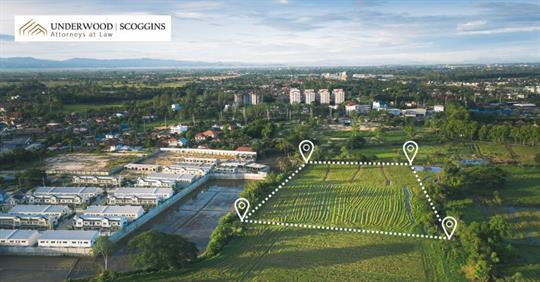Eminent domain is one of the most powerful and often misunderstood legal concepts a property owner can face. It's the government's inherent right to take private property for public use, even if the owner doesn't want to sell it. In Georgia, as in the rest of the country, this power is not absolute. As a property owner, understanding your rights is the first and most critical step in protecting your investment.
The Constitutional Foundation and Limitations
The power of eminent domain is rooted in both the U.S. and Georgia constitutions. The Fifth Amendment to the U.S. Constitution states that private property cannot be taken for public use without "just compensation." This isn't just a suggestion; it's a non-negotiable requirement. Georgia’s constitution offers similar protections, adding layers of security for property owners.
There are two primary conditions for a government to exercise eminent domain:
Public Use: The property must be taken for a legitimate "public use." This includes projects like building highways, schools, hospitals, or public utilities. The definition of public use has been debated and refined over time, but generally, it must benefit the public at large.
Just Compensation: The property owner must receive fair market value for the property. This is a crucial point that is often a source of dispute. "Just compensation" includes not only the value of the land itself but also any damages incurred to the remaining property if only a portion is taken.
Your Right to Challenge the Taking and the Offer
When the government or a condemning authority moves to take your property, they must follow a specific legal process. They can’t just show up and demand you leave. You have the right to challenge the action in court, but it's important to be strategic about what you're challenging.
While it is rare to stop the government from taking your property for a legitimate public project, you have a powerful right to challenge the amount of compensation being offered. This is where an experienced legal advocate can make all the difference. The initial offer from the condemning authority is often a starting point, not the final word. Our role is to meticulously analyze the offer, assess the true value of your property, and fight for every dollar you deserve.
The Fight for Fair Compensation
The valuation process can be complex. It's not just about the square footage of your land. We consider factors like:
The highest and best use of the property.
The potential for future development.
The impact on your business operations or quality of life.
The cost of relocating or restoring a remaining portion of your property.
Condemning authorities have their own teams of appraisers and legal experts. You need a formidable team on your side to level the playing field. We have the experience to negotiate aggressively on your behalf and, if necessary, take your case to court to ensure you are truly and justly compensated.
Protect Your Property. Assert Your Rights.
Don't assume that the government's offer is fair or that you have no recourse. The legal framework is designed to protect you, but you must be proactive in asserting your rights. The government's power of eminent domain is a serious matter, and so is your right to fair compensation.
If your property is being targeted for a public project, the time to act is now. Underwood Scoggins is here to help. We'll provide the strategic counsel and unwavering advocacy you need to protect your interests and secure the compensation you're owed.
Call us at (762) 300-3484 to schedule a consultation.


